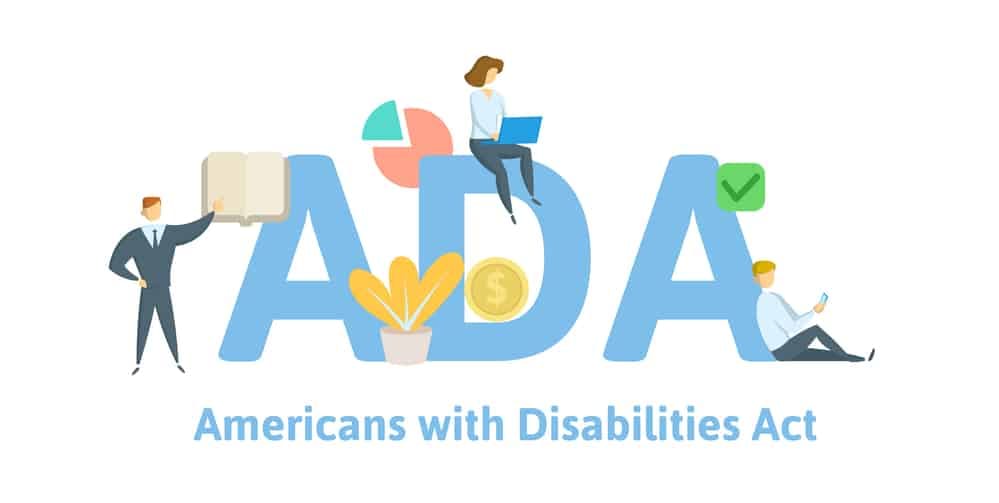In this post, we want to highlight a current trend that is showing no signs of slowing down. We’re talking about the rise of ADA lawsuits against websites both big and small. This is a result of the digital age we live in, where more and more people utilize the internet for their day-to-day activities.
The ADA is an acronym for the Americans with Disabilities Act. George H. W. Bush signed this Act into law on July 20, 1990. The law was amended in 2008, with the changes taking effect on January 1, 2009. This civil rights law protects Americans living with mental and physical disabilities from certain forms of discrimination. While the ADA covers a vast multitude of aspects, we are focusing on one aspect relevant to our partners: ADA compliance for websites.
While the law provides unambiguous guidelines for many things, websites sit in murky waters, with no clear stipulations in place. This ambiguity creates significant problems for e-commerce businesses of all sizes. In January of this year, Beyoncé Knowles’s company, Parkwood Entertainment, faced a class-action lawsuit for failure to provide visually impaired people with a means to navigate their website. Mary Conner, the Plaintiff in this lawsuit, claimed that the site was “an exclusively visual interface,” making it impossible for her to use the site without the assistance of a sighted companion.
The Parkwood Entertainment case is not the only one. In May, Juan Carlos Gil, a legally blind Florida resident, sued about 50 AutoNation Inc. dealerships in Florida. In this case, his screen-reader software couldn’t access the website, making it impossible for him to navigate it on his own. According to Seyfarth Shaw (a law firm that tracks ADA-related litigation around the country), the number of lawsuits this year could be 2,400 or higher. ADA website lawsuits are up from the previous two years, with many cases reaching a financial settlement as well as commitments to update their noncompliant websites.
What can you do to protect yourself and your business from ADA related lawsuits? A great place to start is by reading up on ADA guidelines, available here. It’s also important to consider how people with hearing, visual impairments, or who use their voice to navigate can use your website. Can they engage with your content in a meaningful way? While the debate on creating guidelines for this medium is ongoing, here are some actionable steps you can take to start you down the path of compliance.
- Use alt tags to describe videos, images, and audio files. This extra step makes it easier for users to read or listen to descriptions of the content that’s on display that they otherwise wouldn’t be able to see.
- Include transcripts of all audio and video content for the visually impaired.
- Include the website’s language in the header code. It’s crucial for users that utilize text readers since the software can identify that code and adjust accordingly.
- Have alternatives and suggestions for the occasional input error. By doing this, you can help provide users with a way to engage with your website in a way that better fits their needs.
- Create a layout that is consistent, organized, and easy to navigate. Take into consideration menus, links, font size, headers, and buttons, to name a few. They should be delineated clearly, so your website is easy to use.
- If there is room in your budget, consulting an attorney in disability law is an excellent option. They have the knowledge and experience to point out the things you might have missed.
ADA compliance is a marathon, not a sprint. It can take time, money, and effort, but we can’t stress how important it is to be accessible to as many people as possible. While it can help you avoid costly legal fees, it also has the added benefit of bringing in more users and more business. At LeadsMarket, we value our Publisher Partners and make it a top priority to keep you up to date with the latest news and trends in the industry.


